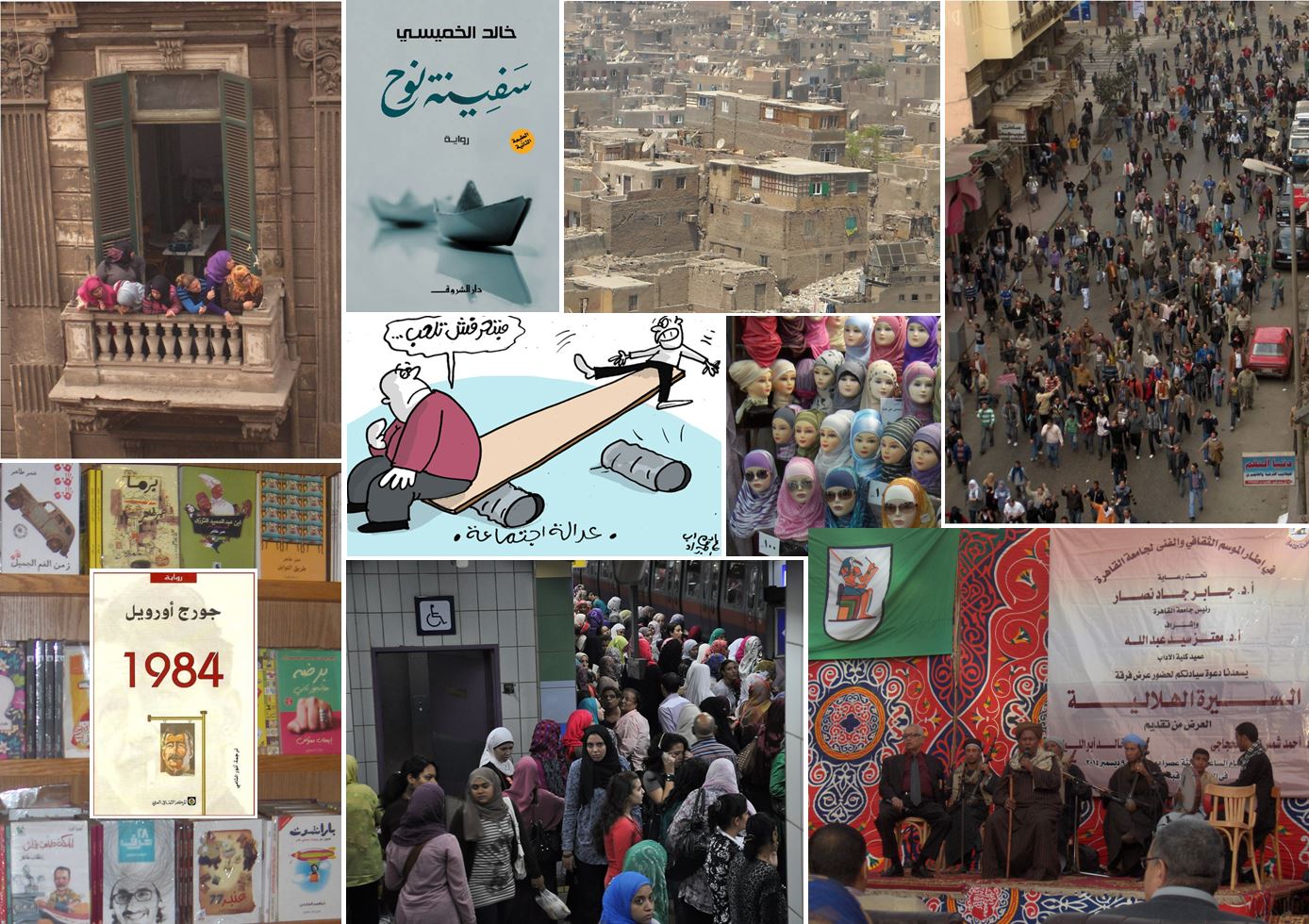Om prosjektet
Var gjennomsnittlige egyptere eller tunisiere ikke snarere opptatt av mye annet enn det som var de tre bestselgende slagordene i vestlig mediedekning av regionen?
Prosjektet søkte å skape en ”encyklopedi over 2016” som gjennom et snapshot-aktig portrett av ett år gjorde det mulig for leseren å ”hoppe rett inni” året og (ved hjelp av kryssreferanser) bevege seg rundt i postrevolusjonære arabiske realiteter, et verktøy som får leserne til å oppleve ”hvordan det føles” å leve i den arabiske verden i en historisk overgangsperiode.
Bakgrunn
”Frihet”, ”brød” og ”verdighet” har vært de viktigste kravene under opprørene. Men under disse overskriftene gjemmer det seg utallige konkrete detaljproblemer og menneskelige erfaringer. Og det er mye mer som kjennetegner verdenen arabere lever i i dag: arbeidsledighet blant ungdom, boligmangel, utdanning man ikke har råd til; trafikkork, tettpakket offentlig transport, nesten uutholdelig luftforurensning, stadige strømbrudd; hvordan å forelske seg, bli gift, danne en familie; skal man forlate landet; trakassering av kvinner og voldtekt; men også estetisk kirurgi og de nyeste såpeoperaene på TV; filmfestivaler, poesi, konserter, framføringer av gamle ”folkelige” epos, fremveksten av tegneserier, og en boom av satire.
Dessuten er det også en nesten utrolig kontinuitet i livet til dem som nok utgjør den tause majoriteten: som om revolusjonene bare hadde vært de gale påfunnene til noen bortskjemte aristokrater eller borgerlige ungdommer.
Metode og mål
Tilnærmingsmåten i prosjektet er inspirert av H. U. Gumbrechts berømte studie "In 1926: Living at the Edge of Time".
Prosjektet har fokusert på to viktige områder av kulturell produksjon: litteratur og sosiale medier. Det er der aktuelle problemstillinger og ”meningen med livet” stadig blir diskutert, og det er der data om kroppslige erfaringer, emosjoner og affekter er tilgjengelige.
Hovedmålet med prosjektet har vært å samle denne type data og å identifisere sentrale begreper og strukturer arabere bruker til å få orden på livet i deres post-revolusjonære verden.
I form av en slags encyklopedi med kryssrefererende slagord, har prosjektet siktet på å tegne et variert bilde av hvordan egypterne og/eller tunisiere i målåret opplevde og kategoriserte sine realiteter og hvilke valgmuligheter de så foran seg i hverdagen. En nettbasert ”forskerdagbok” har fulgt og supplert forskergruppens analyser og tolkningsforslag.
Resultater
- ”2016-encyklopediet” (redigert av en postdoktor i litteratur / filmvitenskap)
- En doktorgradsavhandling i arabiske sosiale medier
- Flere artikler skrevet av hoveddeltakerne i prosjektet
- To workshops (2016, 2018) og en større konferanse (2017) som samlet internasjonal ekspertise for å diskutere post-revolusjonære livsverdener
- En online forsker-notisbok
